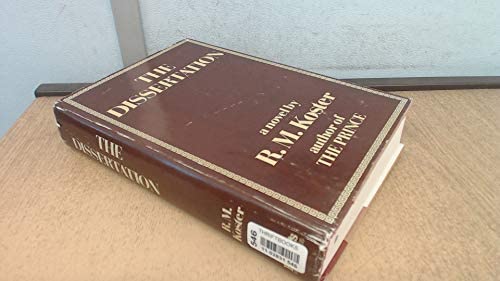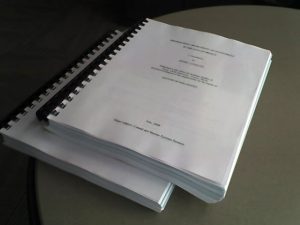A dissertation conclusion is the final section of a dissertation, and it summarizes the main points of the dissertation. It also provides readers with a sense of the dissertation’s overall purpose.
There are a few things to keep in mind when writing a dissertation conclusion:
-Make sure that the main points of the dissertation are summarized -Provide a sense of the dissertation’s overall purpose -Make sure that the conclusion is well-written and easy to understand
There are a few things that you can do to make sure that your dissertation conclusion is effective:
-Make sure that the main points of the dissertation are summarized. This means that you should briefly recap the main points of each section of the dissertation.
-Provide a sense of the dissertation’s overall purpose. This means that you should explain why you wrote the dissertation and what you hoped to achieve with it.
-Make sure that the conclusion is well-written and easy to understand. This means that you should avoid using complex language and make sure that the points are clearly articulated.
What 3 things should a conclusion include?
There are three primary things that should be included in a conclusion: a recap of the main points, a synthesis of the information, and a realization of the implications of the information.
A conclusion should recap the main points of the paper. It should not introduce new information or arguments, but rather remind the reader of what has been discussed. This is especially important in longer papers, where the reader may have forgotten what was said in the beginning.
A conclusion should also synthesize the information. This means that it should put the different points of the paper together and show how they are related. This is a good opportunity to show the reader how you have changed your thinking or what new insights you have gained.
Finally, a conclusion should realize the implications of the information. This is where you can thinking about how the information affects the reader’s life or the world around them. What are the consequences of the information? What questions does it raise? What can be done with the information?
How long should a conclusion be on a 10000 word dissertation?
A dissertation is a lengthy and detailed project, and as such, its conclusion should be equally lengthy and detailed. In most cases, a dissertation conclusion should be around 500 words long. However, if your dissertation is longer than 10,000 words, your conclusion may be longer, up to 1,000 words.
In your dissertation conclusion, you should recap the main points of your argument, and remind the reader of what you have proven. You should also suggest possible directions for future research on your topic. Finally, you should thank your readers for their time and attention.
How do you structure a conclusion?
A conclusion provides a sense of closure for a paper and should accomplish three main goals:
1. Restate the thesis 2. Summarize the main points of the paper 3. Suggest ways in which the argument could be developed further
The thesis should be restated in a new way, not simply copied and pasted from the introduction. The main points of the paper should be summarized, but only the most important points – the reader should not be overwhelmed with details. And finally, the argument could be developed further by suggesting possible areas for further research or by raising questions that the paper has not answered.
How long should a conclusion be for a dissertation?
A dissertation is a lengthy and detailed piece of writing, and as such, it is important to ensure that your conclusion is just as long and detailed as the rest of your work. In most cases, your conclusion should be around 500 words in length, but it is important to tailor it to the specific needs of your dissertation.
Your conclusion should recap the main points of your dissertation, and it should also provide a summary of the evidence that you have presented. It should also highlight the implications of your findings, and it should suggest ways in which your findings could be used in future research.
If you have answered any research questions in your dissertation, your conclusion should also provide a brief answer to each question. Finally, your conclusion should provide a brief overview of the limitations of your research, and it should suggest areas for future research.
How long should a conclusion be for a 15000 word dissertation?
A dissertation is a long piece of writing, and the conclusion is an important part of it. The conclusion should be around 500-1000 words long, depending on the length of the dissertation. It should recap the main points of the dissertation, and it should also suggest ways to further research the topic. The conclusion should be well written and well organized, and it should flow smoothly from the rest of the dissertation.
How many words should a conclusion be in 8000 word dissertation?
There is no definitive answer to this question as it depends on the specific dissertation and the preferences of the individual writing it. However, a conclusion typically ranges from 100 to 500 words in an 8000 word dissertation. It is important to note that the conclusion is the final opportunity to make an impression on the reader, so it should be well-written and thought-out.
How long should a conclusion be in a dissertation?
A dissertation should have a clear and concise conclusion that summarizes the main points of the paper. The conclusion should be around 100-200 words long and should not introduce any new information. It should restate the purpose of the paper and highlight the main findings. The conclusion should also suggest possible future research directions.
How long does it take to write a 10000 word dissertation?
There is no one answer to the question of how long it takes to write a 10000 word dissertation. It will vary depending on the individual, the topic, and the level of difficulty. However, a good rule of thumb is that it will take around two months to write a 10000 word dissertation if you are working full-time.
It is important to give yourself enough time to write a high-quality dissertation. Trying to rush the process will only lead to frustration and a lower grade. If you are behind schedule, talk to your professor about possible extensions.
There are a few things you can do to speed up the writing process. First, make sure you have a good outline. This will help you stay on track and avoid getting bogged down in detail. Second, make sure you are familiar with the format requirements of your school and department. Third, use resources such as online databases and academic journals to do your research.
Finally, remember to take breaks and relax occasionally. Writing a dissertation can be stressful, so it is important to take time for yourself. Go for a walk, watch a movie, or just relax with friends. This will help you stay focused when you return to work.
How many words should dissertation conclusion be?
When writing a dissertation, many students agonize over the amount of words they should include in the conclusion. Some students believe that the conclusion should be a brief summary of the main points of the dissertation, while others believe that the conclusion should be a longer, more in-depth discussion of the findings of the research.
The answer to the question of how many words a dissertation conclusion should be is that there is no set answer. It depends on the length and scope of the dissertation, as well as the preferences of the instructor or supervisor. However, a good rule of thumb is to aim for around 500 words. This will give you enough space to summarize the main points of your dissertation, but also enough space to discuss the implications of your findings and suggest possible directions for future research.
How many references do I need for a 10000 word dissertation?
When writing a dissertation, it is important to provide your readers with adequate resources in order to support your points. However, you don’t want to drown your reader in a sea of citations. So how many references do you need for a 10,000 word dissertation?
The answer to this question depends on a variety of factors, including the type of dissertation you are writing, the field of study, and the academic institution you are attending. However, a good rule of thumb is to have between 8 and 12 references for a 10,000 word dissertation.
Of course, you will want to make sure that your references are credible and reliable. Check with your professor to see if they have any specific requirements or recommendations for the types of sources that you should use.
When choosing your references, make sure to select a variety of sources, including books, journal articles, and online sources. Be sure to cite your sources accurately and use proper formatting, so that your readers can easily find and evaluate the sources you have used.
Writing a dissertation can be a daunting task, but if you take it one step at a time, you will be able to complete it successfully. Make sure to consult with your professor and use the best resources available to you in order to create a high-quality dissertation that will impress your readers.
How should I structure my conclusion?
When writing a conclusion, it is important to remember to restate the thesis statement and to summarize the main points of the essay. It is also important to leave the reader with something to think about, such as a question or a call to action.
What are the 5 parts of a conclusion?
A conclusion is the final part of an essay, report, or speech. It summarizes the main points and restates the thesis. A good conclusion also provides a sense of closure for the reader.
There are five parts of a conclusion:
1. Restate the thesis
2. Summarize the main points
3. Give the reader a sense of closure
4. Offer any final thoughts
5. Thank the reader
What are the 3 elements of a conclusion?
A conclusion is a short, sharp statement that sums up what has been said in a piece of writing. In academic writing, there are three key elements of a conclusion:
1. A restatement of the thesis 2. A summary of the main points 3. A call to action
A thesis is a statement of the main argument of a piece of writing. A summary of the main points is a brief recap of the main points of the argument, and a call to action is a suggestion of what the reader should do next.
All three elements are essential in order to provide a clear, concise conclusion that leaves the reader with a clear understanding of the argument.



